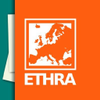Smoking in Belgium
The overall smoking prevalence in Belgium has decreased a small amount since 2006. 25% of the adult population in Belgium are current smokers, down from 26% in 2006. This means there are now approximately 2.4 million smokers in the country. 26.9% of men smoke and for women the figure is 23.1%. The most recent data show there were 18,736 annual deaths from tobacco-smoking related diseases (approximately 5,500 women and 13,200 men). The annual percentage of all deaths attributable to tobacco smoking was 19.56% (women: 9.6%; and men: 23.7%). Nicotine vapes (e-cigarettes) are legal in Belgium and there are 305,200 vapers in the country, giving an adult vaping prevalence of 3.16%. There is a requirement to ensure vape packaging contains a health warning, and they can only be sold to those 18 and older. Vaping devices can be purchased without a prescription but there are legal restrictions on their use in public places. There is no specific law on heated tobacco products and the situation is quite complicated for snus. While it is illegal to import snus for trade or buy the product online, it is possible to import it for personal use. Nicotine replacement therapy (NRT) can be marketed and it is available to buy in pharmacies without a prescription. The NRT market in Belgium is worth €18.7 million. For further information and full references, click through to the detailed datasheets above.
Read articles from Belgium
March 28, 2024 by euronews.com
Belgian health minister calls for more EU action against tobacco
Belgian Health Minister Vandenbroucke emphasized the EU's need for more initiatives to combat tobacco use and promote prevention. He highlighted the importance of reducing tobacco and alcohol consumption, as outlined in Europe's Beating Cancer Plan. Vandenbroucke stressed the significance of prevention in reducing non-communicable diseases and urged for more attention to health promotion. He called for creating an environment that empowers healthy lifestyles, addressing inequalities, and criticized the tobacco and alcohol industry. Vandenbroucke highlighted the EU's role in promoting a healthy market and called for more initiatives on tobacco and alcohol regulation.
March 26, 2024 by tobaccoreporter.com
Belgium to Ban Sale of Disposables
Belgium will ban the sale of disposable e-cigarettes effective Jan. 1, 2025, making it the first EU country to do so, reports The Brussels Times, citing Federal Health Minister Frank Vandenbroucke. The country has received approval from the European Commission for the ban. “The disposable e-cigarette causes a lot of damage to society and the environment,” said Vandenbroucke. “This harmful product mainly targets our young people. I am therefore pleased that we can remove this from the market.”
October 25, 2023 by brusselstimes.com
Smoke-free generation by 2040: Belgium steps up campaign against tobacco
In a move that aims to step up Belgium's battle against smoking, Health Minister Frank Vandenbroucke announced on Tuesday a series of measures that will curtail tobacco companies and ban outright the display of tobacco products. The national Cancer Foundation reports that almost a quarter (24%) of Belgians smoke, of which one in five (19%) smoke daily. At the same time, 14,000 people die in Belgium each year from smoking-related illnesses whilst there are 300,000 who suffer.
March 23, 2023 by brusselstimes.com
Teenage trends: Less alcohol, tobacco and drugs; more e-cigarettes and medication
Alcohol consumption among teenagers is falling significantly, as is their use of tobacco and (soft) drugs, an annual survey by the Flemish Alcohol and other Drugs (VAD) expertise centre reveals. Cannabis use has never been as low as the last academic year, but experts have concerns about other trends.
The use of tobacco, alcohol and cannabis among young people is declining: 17.8% of teenagers between 12 and 18 indicated that they used tobacco in the last year, almost 20% less than three years ago (before Covid-19).
January 26, 2023 by brusselstimes.com
Belgium's Health Minister wants nicotine pouches banned
Health Minister Frank Vandenbroucke called on Wednesday for a ban on nicotine pouches, noting that, like e-cigarettes and vaping, they can be a stepping stone to smoking for young people.
”Our goal is to prevent our children and young people from smoking," Vandenbroucke said. "If you are fully committed to a smoke-free generation, you must ensure that young people come into less contact with smoking or anything related to it.”
October 26, 2022 by ethra.co
ETHRA letter to the Belgian government
October 2022. ETHRA wrote to the Belgian government to highlight the important role safer nicotine products can play in its upcoming inter-federal strategy for a smokefree generation. The letter was co-signed by 19 independent experts in tobacco and nicotine science and policy.
October 21, 2022 by brusselstimes.com
Belgium to ban tobacco vending machines in hospitality industry
Belgium's Federal Government will soon ban all tobacco vending machines in bars or restaurants, but not in supermarkets which are exempted, the Parliamentary Committee on Public Health decided on Wednesday.
The Federal Government backed a bill by Federal Health Minister Frank Vandenbroucke to completely ban tobacco vending machines in the hospitality industry. Federal MP for the Christian-democratic CD&V party Els Van Hoof, who paved the way with a similar bill in 2016, stressed that the ban should especially give minors less easy access to cigarettes.
October 11, 2022 by brusselstimes.com
Nicotine sachets popularity among young people causing concern in Belgium
Snus, nicotine sachets which are consumed orally, is becoming increasingly popular among the Belgian youth, worrying health experts. [...] While this product is illegal in Belgium, the tobacco industry has circumvented the laws preventing its sale by manufacturing a tobacco-free version, a purely nicotine pouch, which is causing alarm as it is becoming very popular with young people here. "For a smoker, it's a way to do without tobacco by lowering the cancer risk factor," explains Adrien Meunier, a tobacconist from Liège. “But for young people there are other risks.”
July 11, 2022 by brusselstimes.com
Flemish Health Council calls for reform of how e-cigarettes are sold
The Flemish Health Council warns not to start smoking electronic cigarettes unless as a replacement for classic cigarettes. The Council calls on the government to enforce stricter measures on the liquids in e-cigarettes and to makes packaging less attractive to young people, De Morgen reported.
According to Belgium’s health office, almost 10% of young men between 15-24 smoked e-cigarettes once a week. In a student survey, 17% of Flemish youth admitted to smoking an e-cigarette once in the past year.
October 14, 2021 by brusselstimes.com
Smoking to become more expensive in Belgium
A packet of cigarettes in Belgium will soon become 25 cents more expensive as a result of increased tax duties on tobacco.
As part of the government’s budget agreement, announced on Tuesday by Prime Minister Alexander De Croo (Open Vld), the cost of cigarettes will be increased, of which the proceeds will go towards reducing the financial burden on the middle class, by gradually phasing out the special social security contribution among other things.
- Page 1 of 2



